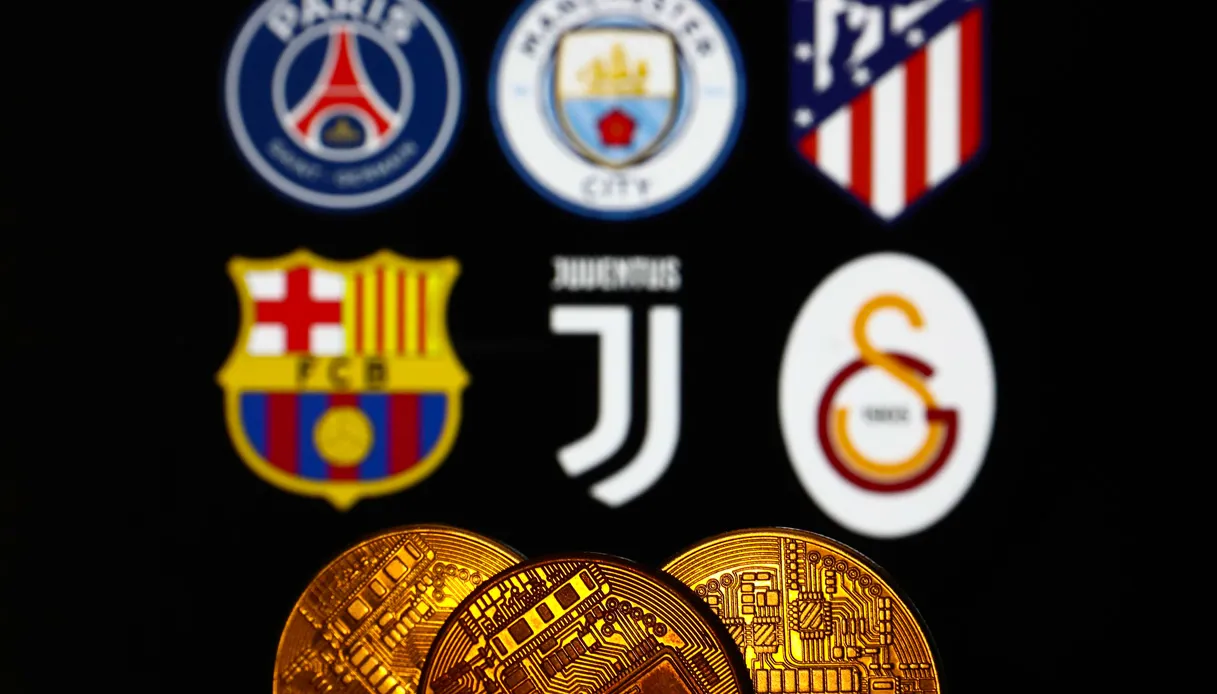Sports
Premier League Clubs Launch Blockchain Fan Token Systems

Several Premier League clubs have officially adopted blockchain-based fan token systems in a groundbreaking move designed to enhance fan engagement and digital revenue streams. The adoption of blockchain technology marks a new era for football, blending sports with digital innovation and transforming how supporters interact with their favorite teams. As clubs seek to strengthen global fan relationships and diversify income sources, blockchain tokens are emerging as a powerful tool in modern sports management.
How Blockchain Tokens Are Changing Fan Engagement
Fan tokens are digital assets that allow supporters to participate in exclusive club activities, access rewards, and influence certain club decisions through secure blockchain platforms. Each token is built on a decentralized network, ensuring transparency and security while creating a new economic model for fan participation. Holders can vote on minor decisions such as jersey designs, matchday playlists, or charity initiatives, turning passive supporters into active stakeholders in the club’s ecosystem.
This technology has quickly gained traction among leading football organizations. Clubs such as Manchester City, Arsenal, and Tottenham Hotspur have introduced blockchain-powered fan tokens through partnerships with major digital platforms. These partnerships provide fans around the world with the opportunity to connect directly with their clubs while unlocking unique benefits such as virtual meet-and-greets, NFT collectibles, and limited-edition merchandise.
Blockchain systems also help clubs improve data analytics and fan relationship management. By using decentralized ledgers, clubs can securely store fan data, track engagement, and tailor digital experiences without compromising privacy. The technology’s transparency ensures that all transactions are verifiable, preventing fraud and ensuring trust between clubs and their supporters.
Supporters’ enthusiasm for digital participation has been evident. Early token releases have sold out within hours, reflecting a growing appetite for blockchain-based fan interaction. Experts believe that these systems could redefine how loyalty is measured and monetized in global sports, shifting fan engagement from one-way marketing to genuine community participation.
Economic and Strategic Benefits for Clubs
For football clubs, the integration of blockchain technology represents more than just fan engagement, it is a strategic response to financial pressures and evolving market dynamics. The Premier League generates billions annually, but competition for commercial revenue remains intense. Clubs are increasingly looking for innovative ways to boost income without relying solely on broadcasting rights and matchday sales.
Blockchain tokens offer a scalable new revenue stream. Each fan token represents a digital product that can be traded, collected, and integrated into the broader sports economy. Clubs earn revenue from token sales, transaction fees, and collaborations with blockchain companies. This diversification is especially valuable in a post-pandemic world where digital platforms are becoming central to sports entertainment.
Moreover, blockchain technology allows clubs to extend their brand presence beyond traditional borders. International fans, particularly those in Asia, the Middle East, and North America, can participate in team-related activities without being physically present. This global connectivity strengthens club loyalty and helps build new markets for merchandise, sponsorships, and media rights.
Industry analysts estimate that the global sports token market could exceed £5 billion by 2027, with football accounting for more than half of the value. The Premier League’s early adoption positions it ahead of other leagues in terms of digital transformation. Analysts also note that blockchain could revolutionize ticketing systems, helping clubs combat scalping and fraud while offering digital ticket ownership verified on secure ledgers.
In addition, the fan token model aligns well with broader trends in digital finance. As cryptocurrencies and decentralized assets gain mainstream acceptance, blockchain engagement provides clubs with a forward-looking way to connect with younger, tech-savvy audiences. The use of blockchain technology also signals a willingness among football institutions to adapt to a digital-first world, ensuring long-term relevance and sustainability.
Challenges and Regulatory Considerations
Despite the excitement surrounding blockchain adoption in sports, experts caution that challenges remain. Regulatory uncertainty and the volatility of digital assets pose potential risks for both clubs and fans. Some critics argue that fan tokens may blur the line between engagement and investment, as token values fluctuate based on market activity. Clubs must therefore ensure that fans clearly understand the purpose of these tokens as engagement tools rather than speculative assets.
To address these concerns, the UK’s Financial Conduct Authority is working to clarify the legal status of digital fan tokens and ensure compliance with financial regulations. Transparency in token issuance and pricing remains a top priority. Clubs are also being urged to implement robust cybersecurity measures to protect fan data and prevent unauthorized access to blockchain systems.
Education will play a key role in the successful adoption of blockchain fan tokens. By providing clear guidance and user-friendly interfaces, clubs can ensure that fans understand how to safely participate in the new digital ecosystem. Early adopters have begun hosting webinars, social media tutorials, and community outreach programs to help supporters navigate the technology confidently.
Despite these hurdles, the overall outlook remains positive. The integration of blockchain into sports management is widely viewed as an inevitable step in the digital evolution of football. As the technology matures, fan tokens are expected to evolve beyond simple engagement tools into multifunctional digital assets capable of integrating with ticketing, merchandise, and even virtual stadium experiences.
Conclusion
The Premier League’s embrace of blockchain fan token systems marks a transformative moment in football’s digital future. By combining the emotional power of sports with the innovation of blockchain technology, clubs are creating a new form of connection that extends far beyond the pitch. Fans now have the opportunity to engage with their teams in unprecedented ways, while clubs gain a sustainable model for growth and global expansion.
As digital transformation continues to reshape industries worldwide, the integration of blockchain in football demonstrates that technology and tradition can coexist harmoniously. The success of these fan token systems may well define the next chapter of sports innovation, one where every supporter becomes an active participant in their club’s journey.


















